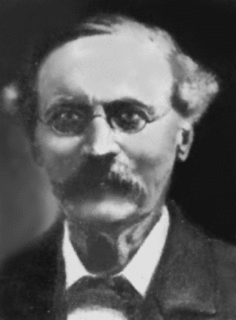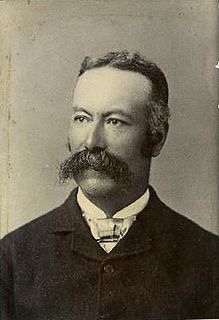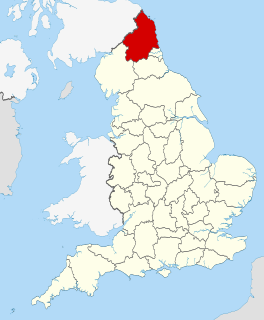
James Hutton was a Scottish geologist, physician, chemical manufacturer, naturalist, and experimental agriculturalist. He originated the theory of uniformitarianism—a fundamental principle of geology—that explains the features of the Earth's crust by means of natural processes over geologic time. Hutton's work established geology as a science, and as a result he is referred to as the "Father of Modern Geology".
Sir Douglas Lorimer Kidd is a former New Zealand politician. He was an MP from 1978 to 2002, representing the National Party. He served for three years as Speaker of the House of Representatives.

Mairehau High School is a school in Christchurch, New Zealand, taking its name from the suburb Mairehau having been adopted in 1916 as a compliment to Mrs Mairehau Hutton whose father, Arthur Gravenor Rhodes, owned considerable property in the area and was a notable benefactor to the district.

Edward Francis Hutton was an American financier and co-founder of E. F. Hutton & Co., one of the largest financial firms in the United States.

Captain Frederick Wollaston Hutton, FRS, was an English-New Zealand scientist who applied the theory of natural selection to explain the origins and nature of the natural history of New Zealand. An army officer in early life, he then had an academic career in geology and biology. He became one of the most able and prolific nineteenth century naturalists of New Zealand.
The following lists events that happened during 1902 in New Zealand.
The following lists events that happened during 1918 in New Zealand.

Theodore James Wilson is a Canadian retired professional wrestler currently signed to WWE as a producer under the ring name Tyson Kidd. He has not wrestled since suffering a spinal cord injury during a match on June 1, 2015.
James Mackenzie may refer to:

Alfred Kidd was a New Zealand politician of the Liberal Party. He was the 18th Mayor of Auckland.
The following lists events that happened during 1881 in New Zealand.
The following lists events that happened during 1878 in New Zealand.
Microvoluta is a genus of very small sea snails, marine gastropod molluscs in the family Volutomitridae.
Brookula is a genus of minute sea snails or micromolluscs, marine gastropod molluscs unassigned in the superfamily Seguenzioidea.
David Campbell Kidd was a New Zealand politician of the National Party.
Comitas fusiformis is an extinct species of sea snails, a marine gastropod mollusc in the family Pseudomelatomidae, the turrids and allies
James Hutton Mackenzie was a New Zealand presbyterian minister. He was born in Thornhill, Dumfriesshire, Scotland on 27 September 1849.

Frank Edward Clarke was a New Zealand ichthyologist and scientific illustrator. He discovered numerous fish species previously unknown to science and was the third most active describer of those new species in New Zealand from 1870 to 1905. Clarke was also an artist and a collection of his scientific illustrations is held at Museum of New Zealand Te Papa Tongarewa.
The 1877 Totara by-election was a by-election held on 30 April 1877 in the Totara electorate on the West Coast of New Zealand during the 6th New Zealand Parliament.









